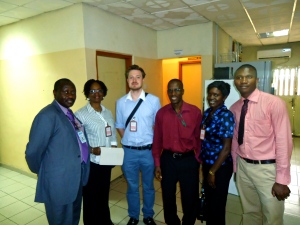John Chetwood, winner of the 2012 IGHI Student Challenges Competition tells us how he has put the £2000 prize money to good use.
Detecting a Silent Cancer
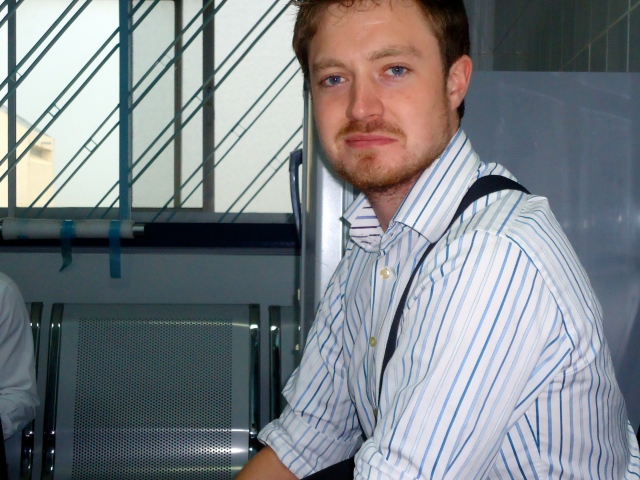 With the hepatologists at Imperial College London, I had been in rural Thailand investigating urinary biomarkers of ‘cholangiocarcinoma’ or simply put, cancer of the bile ducts. Though cholangiocarcinoma is thankfully rare in developed countries, it is showing worrying increases in incidence, and has shown little improvement in survival over the last 15 years. There is still little hope of cure unless detected early and nearly everyone who develops this cancer will die from it. This situation is particularly bleak when you consider parts of rural South-East Asia where mainly due to parasitic infection the incidence surpasses 300/100,000, yet there are significant limitations on any kind of investigation or treatment.
With the hepatologists at Imperial College London, I had been in rural Thailand investigating urinary biomarkers of ‘cholangiocarcinoma’ or simply put, cancer of the bile ducts. Though cholangiocarcinoma is thankfully rare in developed countries, it is showing worrying increases in incidence, and has shown little improvement in survival over the last 15 years. There is still little hope of cure unless detected early and nearly everyone who develops this cancer will die from it. This situation is particularly bleak when you consider parts of rural South-East Asia where mainly due to parasitic infection the incidence surpasses 300/100,000, yet there are significant limitations on any kind of investigation or treatment.
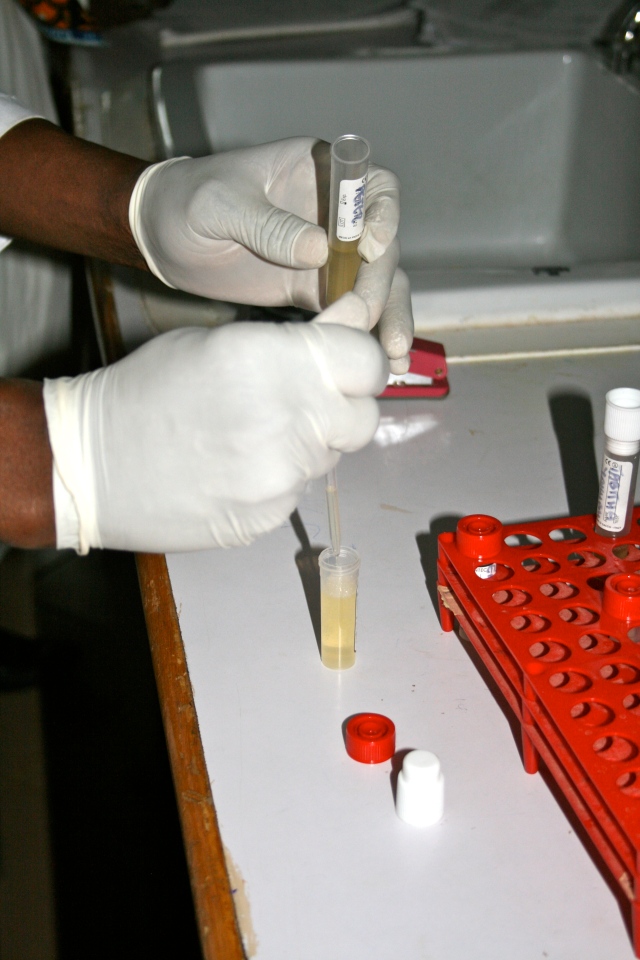 In my final year as a medical student at Imperial College, my efforts were directed towards developing a diagnostic and screening urinary dipstick (similar to the kind currently used for pregnancy) which would lead to an accurate, cost-effective, transportable, non-perishable, and culturally permissible way to screen for this cancer in these communities. Early diagnosis of this cancer offers the only realistic chance of cure and with better understanding of how this cancer develops there was also the tangible possibility of new and better treatments.
In my final year as a medical student at Imperial College, my efforts were directed towards developing a diagnostic and screening urinary dipstick (similar to the kind currently used for pregnancy) which would lead to an accurate, cost-effective, transportable, non-perishable, and culturally permissible way to screen for this cancer in these communities. Early diagnosis of this cancer offers the only realistic chance of cure and with better understanding of how this cancer develops there was also the tangible possibility of new and better treatments.
My results
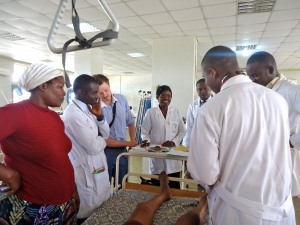 The IGHI’s Student Challenges competition funding allowed me to further my work, travelling to Jos, Nigeria to help collect research samples with Jos University Teaching Hospital, evaluate the collection techniques they were using and view the wider scope of liver diseases in Africa.
The IGHI’s Student Challenges competition funding allowed me to further my work, travelling to Jos, Nigeria to help collect research samples with Jos University Teaching Hospital, evaluate the collection techniques they were using and view the wider scope of liver diseases in Africa.
Liver cancer is one of the leading causes of mortality worldwide, with an estimated annual mortality 500,000 with a survival rate of less than 5%.
Local healthcare in West Africa suffer similar problems to Thailand with underfunding, late presentation, and cultural sensibilities. In both Thailand and West Africa, the late presentation of hepatocellular carcinoma (a different form of liver cancer) means treatment is almost palliative, whereas early diagnosis vastly improves patient prognosis and curative options.
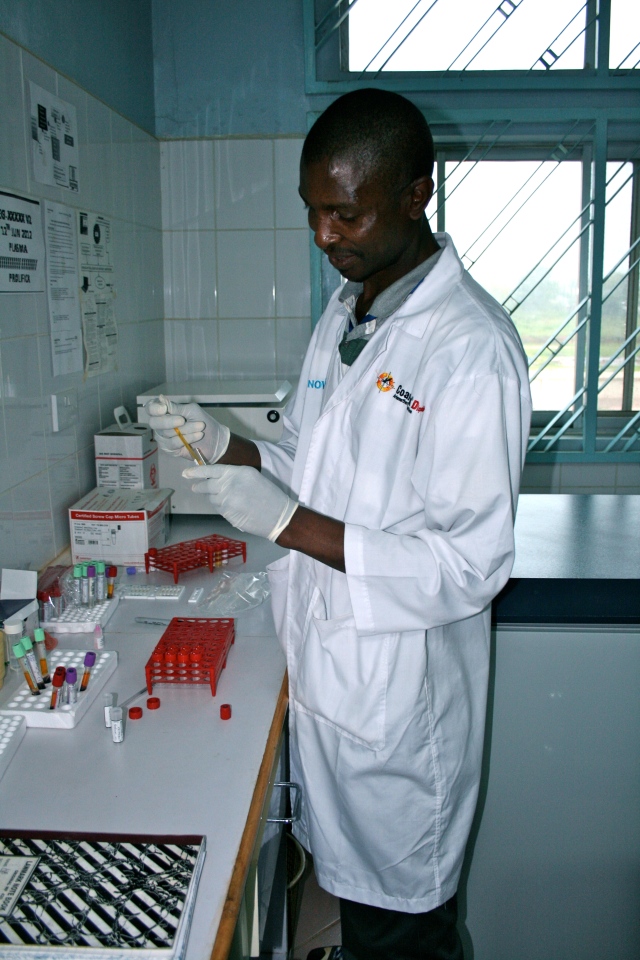 In resource-poor settings, procedures, such as ultrasound are not available and population mass-screening is often not practicable. Clearly, a urinary dipstick that also included this type of cancer would have a wider diagnostic potential and be of great humanitarian benefit, while also helping understand common mechanisms in the cellular development of liver cancer. It is hoped that advancements in biomarker research will have wide ramifications and not be limited to just certain areas or singular liver diseases, hence the comparative nature of the work in Thailand on cholangiocarcinoma and the work in Nigeria on hepatocellular carcinoma.
In resource-poor settings, procedures, such as ultrasound are not available and population mass-screening is often not practicable. Clearly, a urinary dipstick that also included this type of cancer would have a wider diagnostic potential and be of great humanitarian benefit, while also helping understand common mechanisms in the cellular development of liver cancer. It is hoped that advancements in biomarker research will have wide ramifications and not be limited to just certain areas or singular liver diseases, hence the comparative nature of the work in Thailand on cholangiocarcinoma and the work in Nigeria on hepatocellular carcinoma.
Earlier diagnosis presents a real opportunity for cure, and a molecular understanding of this cancer may present more therapeutic possibilities. Given the cohort of patients, metabonomic and proteomic research gains in viral hepatitis and liver fibrosis may also become apparent.
The samples will now be analysed for proteomic and metabolomic data (looking for hepatocellular cancer biomarkers in patients’ blood and urine). This will work to validate earlier work in this area and be compared with Nigeria healthy controls, patients from other African countries who have healthy controls or have hepatocellular carcinoma, healthy controls of other ethnicities, and cholangiocarcinoma patients from Thailand. After identifying the most accurate compounds produced by the cancers, a panel of biomarkers will be developed that can be used on a urinary dipstick to test for them and validate the tests in humans, compared to current gold standards
The international research methods and links have been improved which will enable this aspiration to become a reality.
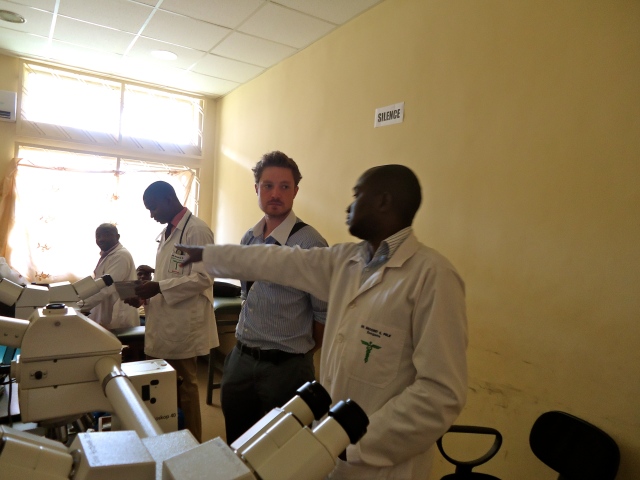 This is an extremely exciting time in the development of this research, and although there is still much work to be done, all the work so far suggests that an accurate, low cost, transportable, non-perishable, culturally permissible way to screen and diagnose entire populations is possible, which could change the way much of way healthcare is run both in developing and developed countries.
This is an extremely exciting time in the development of this research, and although there is still much work to be done, all the work so far suggests that an accurate, low cost, transportable, non-perishable, culturally permissible way to screen and diagnose entire populations is possible, which could change the way much of way healthcare is run both in developing and developed countries.
At the moment, I have just been working on two types of liver cancer. However, there is little reason to doubt that if it is successful, such research could not be extended to other hepatobiliary diseases such as, hepatic fibrosis and viral infections, or even into many different cancers and disease areas.
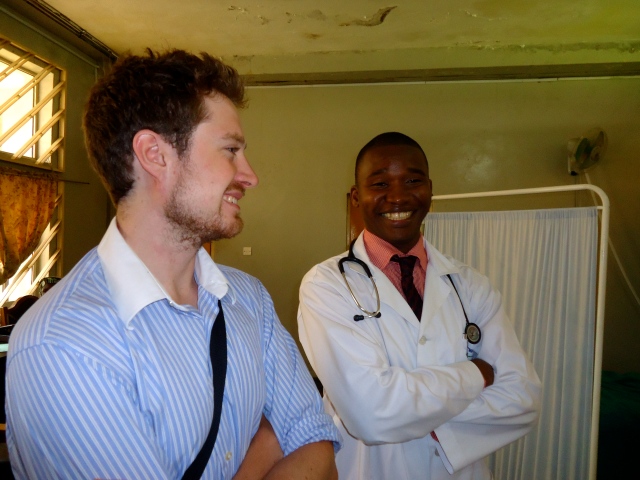 The metabolomic changes seem to suggest that cancer cells often completely reprogram their cellular machinery to create energy from anaerobic, rather than aerobic sources. If this is validated in further research this will have further increased our understanding of cancer and could even develop new treatment targets, in the same way that biological treatments such as growth factor blockers and hormonal receptor blockers have revolutionised chemotherapy and cancer treatment.
The metabolomic changes seem to suggest that cancer cells often completely reprogram their cellular machinery to create energy from anaerobic, rather than aerobic sources. If this is validated in further research this will have further increased our understanding of cancer and could even develop new treatment targets, in the same way that biological treatments such as growth factor blockers and hormonal receptor blockers have revolutionised chemotherapy and cancer treatment.
I am very grateful for the opportunity and benefits provided for me by the IGHI and hope future winners are able to benefit to the same extent from the competition.
This year’s competition
The results of this year’s competition will be presented at our annual event on Thursday 28th November. Further details of the event can be found here
